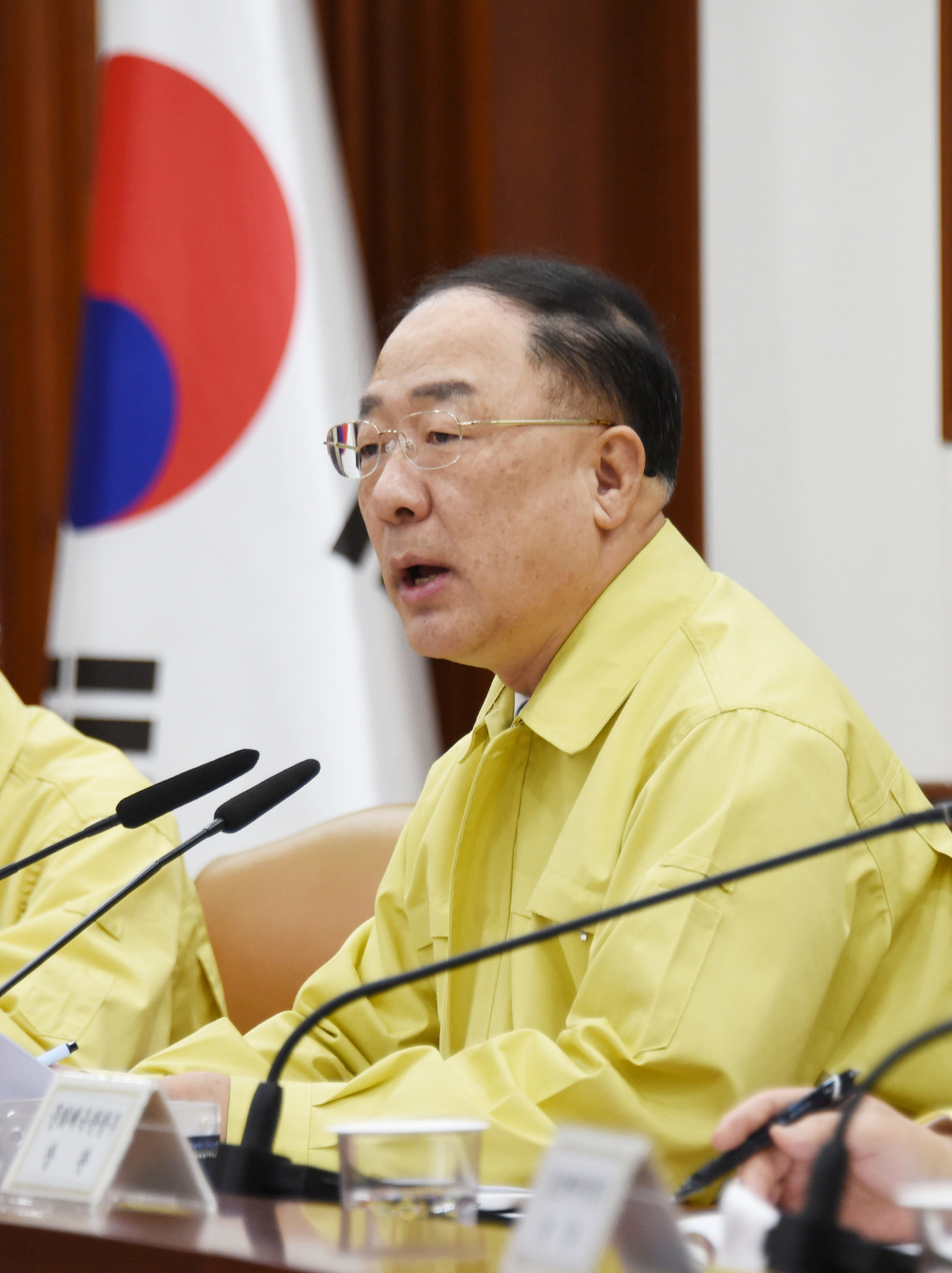 |
Deputy Prime Minister and Finance Minister Hong Nam-ki. (Yonhap) |
In an emergency move to counter the latest market disturbance caused by COVID-19, South Korea’s government on Wednesday activated a “phase one contingency plan,” expanding the cap on foreign exchange forward positions of banks.
It also said that it will reduce the airport landing fees for airplanes and exempt highway tolls for express buses, as a relief measure for the transportation industry which took the hardest blow from the epidemic spread.
Starting Thursday, local banks will see the cap of their foreign exchange forward positions raised to 50 percent from the conventional 40 percent and foreign banks to 250 percent from 200 percent, according to the Ministry of Economy and Finance.
“We expect the measure will contribute to stabilizing the forex swap market by expanding the inflow of foreign currencies here,” said Deputy Prime Minister and Finance Minister Hong Nam-ki.
The chief fiscal policymaker’s remark came during a meeting of economy-related ministers held at Seoul Government Complex, which was converted into a comprehensive economic crisis management task force in light of recent circumstances.
The action, intended to motivate currency swap dealing banks to expand their dollar supplies, is anticipated to add $5-10 billion to the forex market.
Should the increase of the forex forward position turn out insufficient to settle the market, the government is also considering lending dollars out of its own forex reserves directly to the swap market or financial institutions, the ministry added.
“The $5-10 billion addition may seem small considering the daily average transaction of $12 billion but one should take into account that the lending period could range from a day to over a month,” Kim Sung-wook, director of international finance at the ministry, said in a press briefing held at Sejong Government Complex.
The government may also lend dollars out of its own foreign exchange reserves to the swap market or financial institutes, if necessary, the official said.
“Of course, the latest supply imbalance of the swap market may not be resolved merely through an adjustment of the foreign exchange forward position ceiling,” Kim admitted, in answer to a related question.
“Further adjustments could be made when necessary as the finance minister is entitled to move the limits up and down within a 50 percent range.”
Seoul’s forex market deregulatory move came in the wake of mass stock sell-offs by foreign investors and the consequently soaring demands for the US dollar.
On Tuesday, the local currency was valued at 1,243.50 won against the greenback, hitting the lowest in a decade.
In a separate set of actions to support the ailing transportation industry, the finance minister also vowed to provide airplanes with a 20 percent reduction of airport landing fees and a 100 percent exemption of parking fees for the next three months.
Express buses will be temporarily exempted of their highway fees and routes that have seen passengers decline by 50 percent or more may reduce their frequency of service.
For shipping companies that operate Korea-Japan sea routes, the government will allocate an emergency relief fund amounting to 2 billion won ($1.6 million) and exempt their fees at Busan International Passenger Terminal.
Addressing the 11.7 trillion won supplementary budget bill approved by the National Assembly late on the previous day, Hong vowed a swift implementation and follow-up budget allocation plans.
By Bae Hyun-jung (
tellme@heraldcorp.com)








![[Today’s K-pop] Blackpink’s Jennie, Lisa invited to Coachella as solo acts](http://res.heraldm.com/phpwas/restmb_idxmake.php?idx=644&simg=/content/image/2024/11/21/20241121050099_0.jpg)